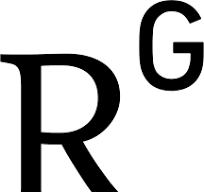Welcome to The Etherington Lab!
Join Us
Why Join Us?
- World-leading expertise in TADF mechanisms and spin-vibronic coupling (Nature Communications, 900+ citations)
- International collaborations with the University of Osaka, University of British Columbia, Technical University Dresden, Technical University Denmark and Kitasato Universities
- State-of-the-art facilities including HORIBA Fluorolog-QM spectroscopy, including TCSPC and Oxford Instruments cryostat for low-temperature measurements
- Joint supervision with Dr Jon Knowles - synthetic and spectroscopic expertise combined
- Student success - publish in high-impact journals and win poster prizes
- International conferences - present at meetings in Japan, Europe, and beyond
- Supportive culture - regular meetings, collaboration, work-life balance
Select Your Path
PhD Opportunities
💡 Your Own Project
Have ideas related to TADF, photophysics, or organic emitters? We're open to discussing projects aligned with our expertise.
Get in Touch →Postdoc Opportunities
💡 Research Fellow in Photoluminescence Spectroscopy
We're recruiting for a Royal Society-funded UK-Brazil collaboration developing pesticide sensors using aggregation-induced delayed fluorescence. This 3-year position splits time between Northumbria University and Universidade Federal de Santa Catarina, with a fully-funded 9-month UK secondment.
Job Description →To apply: Send your CV and cover letter to me by email with the subject 'Research Fellow in Photoluminescence Spectroscopy' via the button below
📧 Email MarcResearch Fellowships
🏆 Independent Fellowships
We support applications for independent research fellowships. Consider:
- Leverhulme Early Career Fellowship
- Royal Society University Research Fellowship
- EPSRC Postdoctoral Fellowship
- Marie Skłodowska-Curie Actions
- 1851 Research Fellowship
Contact us early to discuss projects and support your application.
Discuss Ideas →Undergraduate & Masters Projects
📚 Final Year Projects
For Northumbria Students: BSc/MSc projects in photophysics and spectroscopy. Work with state-of-the-art equipment including Fluorolog-QM.
Typical projects:
- Photoluminescence characterization of TADF materials
- Low-temperature spectroscopy studies
- Charge-transfer state analysis
Contact: Speak to Marc, your programme lead, or your module tutor
Research Visits & Exchanges
🌍 Collaborative Visits
We welcome visiting researchers.
Duration: 1-4 weeks (flexible)
Activities: Joint experiments, data analysis, collaborative writing, group meetings
Funding: Visitors arrange own funding (e.g., JST ASPIRE, RSC)
Propose a Visit →Student Success
Ruth Pollard - Poster Prize
Won at RSC Photophysics Group ECM (2024).
International Conferences
Ruth presented at ICEL 2024 in Kyoto, Japan. Students regularly present internationally.
High-Quality Publications
Group publishes in JPCB, JMC, and collaborates on Nature-level research.
Funding Opportunities
Multiple funding routes available for PhD students, PDRAs, fellows and visitors:
What We're Looking For
Academic Background
We welcome students from:
- Chemistry (physical, organic, materials)
- Physics (condensed matter, photonics, spectroscopy)
- Materials Science
- Related disciplines with strong quantitative skills
Desirable Skills & Interests
- Enthusiasm for fundamental photophysics and spectroscopy
- Interest in organic electronics and light-emitting materials
- Willingness to learn advanced experimental techniques
- Strong analytical and problem-solving abilities
- Good communication and collaborative mindset
Don't have all these skills? That's okay - enthusiasm and willingness to learn matter most!
How to Apply
Step 1: Initial Contact
Send an informal inquiry including:
- Brief introduction and academic background
- Research interests and what excites you about TADF/photophysics
- CV or summary of experience
- Potential funding status (scholarships, self-funded, etc.)
Step 2: Discussion
We'll arrange a video call to discuss projects, funding options, and answer questions about the group and Newcastle.
Step 3: Formal Application
If there's a good fit, we'll guide you through the formal university application and support your funding applications.
Frequently Asked Questions
Ready to Join Us?
Get in touch to discuss opportunities. Informal inquiries always welcome!
📧 Email Marc


